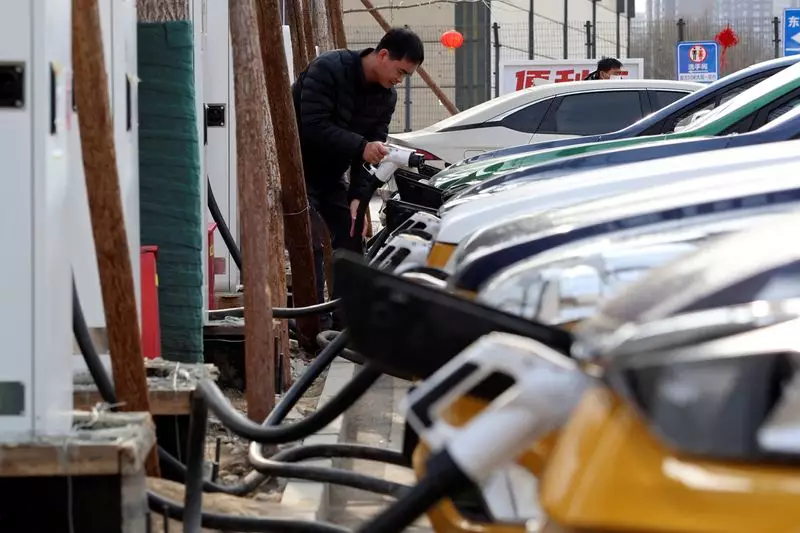The recent imposition of extra duties by the European Union on imported Chinese electric cars has stirred strong reactions from the Chinese government and impacted various stakeholders in the automotive industry. Beijing has expressed hope that the EU will reconsider these tariffs and avoid further escalation, emphasizing the importance of cooperation between two major economic players. The EU decision has prompted concerns about the potential negative effects on Chinese electric car makers, as it could result in significant additional costs and hinder the development of the industry.
Both China and the EU have vested interests in resolving this dispute to prevent billions of dollars in new expenses for Chinese manufacturers. The EU’s move to impose additional tariffs on Chinese electric vehicles follows a similar decision by the United States, reflecting a trend of increasing protectionism in the industry. This has led to clear opposition from various parties, including European and Chinese car makers, who are eager to de-escalate the situation and find a mutually beneficial solution.
China has rejected arguments that its electric vehicle industry poses a threat to overseas automakers due to overcapacity and subsidies, arguing that tariffs will impede the adoption of electric vehicles and raise costs for consumers. The proposed tariffs by the EU could have a significant impact on Chinese automakers, potentially leading to slower growth and reduced competitiveness in the global market. This has raised concerns about the future of the industry and the ability to achieve climate-change goals.
State-owned Chinese automakers, such as SAIC, which have established partnerships with European and American companies, have expressed deep concerns about the potential ramifications of the tariffs. The imposition of additional duties on Chinese electric vehicles could disrupt existing business models and affect sales, forcing companies to rethink their strategies and operations. The EU’s focus on combating Chinese subsidies through tariffs could further complicate the situation and strain international trade relations.
Despite the uncertainties surrounding the EU tariffs, Chinese electric vehicle stocks have shown mixed reactions, with some companies experiencing surges in their share prices while others faced declines. The fluctuating market response reflects the complex dynamics of the automotive industry and the interplay between global trade policies and market forces. Analysts predict that Chinese electric vehicle makers may need to adjust their pricing strategies to offset the impact of the tariffs, potentially affecting consumer demand and market competitiveness.
The EU’s decision to impose provisional duties on Chinese electric vehicles presents both challenges and opportunities for the industry. While Chinese automakers may face short-term setbacks in terms of cost increases and market access, there is also room for innovation and adaptation to changing trade dynamics. The evolving landscape of the electric vehicle market requires strategic planning and proactive engagement with international trade regulations to ensure long-term sustainability and growth.
The EU tariffs on Chinese electric vehicles signal a shift in global trade dynamics and raise questions about the future of the industry. It is essential for stakeholders to engage in constructive dialogue and seek common ground to address concerns and find solutions that benefit all parties involved. The automotive sector faces a period of uncertainty and transformation, requiring strategic foresight and collaborative efforts to navigate the challenges ahead.


Leave a Reply